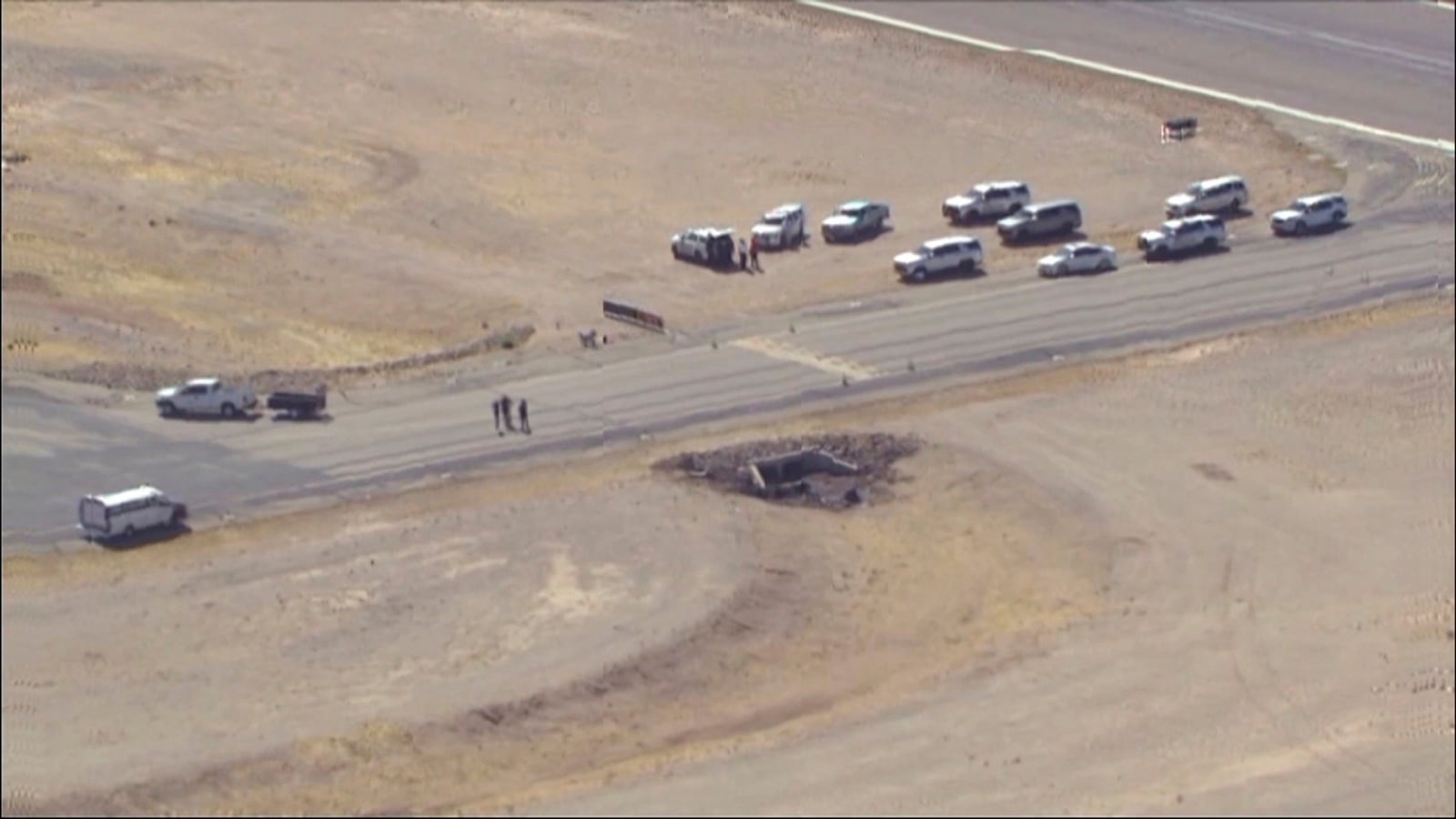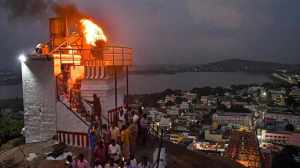Stay updated with the latest - Click here to follow us on Instagram
Two people killed after two planes collide in midair in US’ Arizona
The federal air-safety investigators said that both the planes had two persons each and the two small aircrafts collided at Marana Regional Airport on the outskirts of Tucson.
 In this image taken from video, law enforcement at the site of a deadly plane crash at Marana Regional Airport after a deadly crash in Marana, Arizona. (KNXV via AP)
In this image taken from video, law enforcement at the site of a deadly plane crash at Marana Regional Airport after a deadly crash in Marana, Arizona. (KNXV via AP)At least two people died after two small planes collided mid air in southern Arizona on Wednesday morning, authorities said.
The federal air-safety investigators said that both the planes had two persons each and the two small aircrafts collided at Marana Regional Airport on the outskirts of Tucson at 8:25 a.m. local time.
According to the National Transportation Safety Board’s (NTSB) preliminary information, one of the planes landed uneventfully while the other one hit the ground and near a runway and caught fire.
 In this image taken from video, plane debris seen from above at Marana Regional Airport after a deadly crash in Marana, Arizona. (KNXV via AP)
In this image taken from video, plane debris seen from above at Marana Regional Airport after a deadly crash in Marana, Arizona. (KNXV via AP)
Detailing the model of the two planes, NTSB said they were Cessna 172S and a Lancair 360 MK II. The Marana Police Department informed that two people died in the collision and both were aboard one aircraft and that emergency responders didn’t have enough time to provide medical care.
Sergeant Vincent Rizzi informed that the other two people on another aircraft were not injured and that the municipal fire department helped extinguish the fire.
In a post on X, NTSB said “NTSB is investigating a mid-air collision between Cessna 172S and Lancair 360 MK II near Marana, Arizona.”
NTSB is investigating a mid-air collision between Cessna 172S and Lancair 360 MK II near Marana, Arizona.
— NTSB Newsroom (@NTSB_Newsroom) February 19, 2025
Meanwhile, reports indicate that most airports in the United States do not have air traffic control towers and only those with commercial traffic illustrate the presence of towers.
According to Jeff Guzzetti, a former NTSB investigator, at these airspaces where traffic control towers aren’t present, pilots use a designated radio channel to announce their landing and take offs.
“All the pilots should be broadcasting on this common traffic advisory frequency. And there’s also a responsibility to see and avoid. Each pilot is responsible to see and avoid so they don’t collide with each other,” Guzzetti said as quoted by Associated Press (AP).
- 01
- 02
- 03
- 04
- 05































